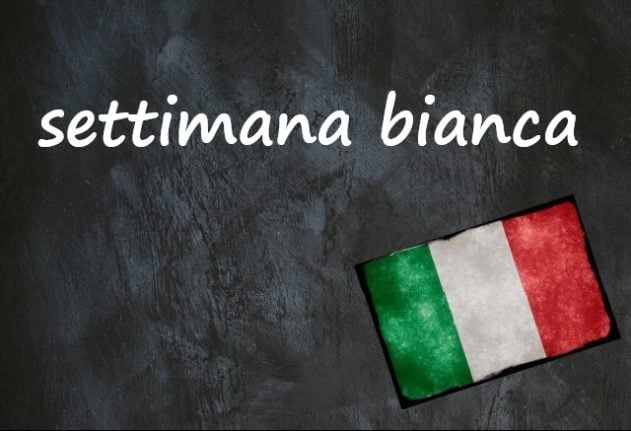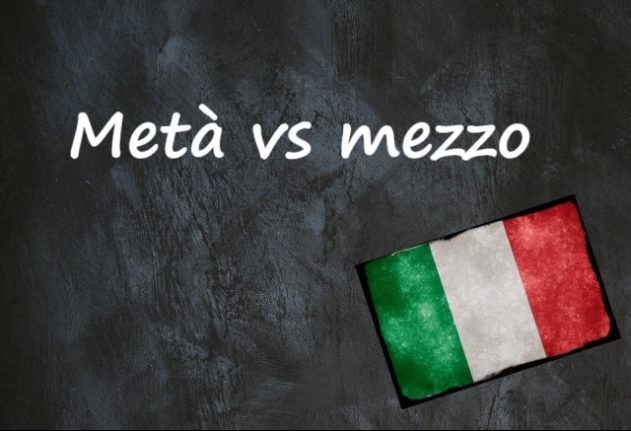As far as winter traditions go, there’s only one thing more quintessentially Italian than a family feud over which is the best Christmas dessert between pandoro and panettone. That one thing is the ‘settimana bianca’ (pronunciation available here).
You might have already heard the expression on a couple of occasions, but if not, you’re very likely to hear it soon from Italian friends, relatives or colleagues as we enter the holiday season
There is a set of unwritten rules governing a respectable settimana bianca, but first, what does the expression actually mean?
The literal translation into English would be ‘white week’, and the phrase is used by native speakers to describe a period of around seven days (but sometimes more) spent in any mountain destination, whether that’s in Italy or abroad.
As you might have guessed, ‘bianca’ refers to the colour of the location’s landscape, which would be white due to the presence of snow.
Dove pensi di fare la settimana bianca quest’anno?
Boh, non ci ho ancora pensato bene. Forse Cortina.
Ma che sei pazzo? Con quei prezzi…
Where are you thinking of going for your ski holiday this year?
Hmm, I haven’t really thought about it yet. Maybe Cortina?
Are you out of your mind? With those prices…
That said, you might wonder what’s so special about a winter break up in the mountains.
Regardless of whether it’s a family vacation or a trip with friends, the settimana bianca has a precise set of features that all Italians seem to be aware of from a very young age, almost as though information on how to execute it came embedded in their own genetic setup.
Firstly, the settimana bianca is a very important social event and the smooth unfolding of the holiday is seen as vitally important.
As such, the organisers spend the preceding weeks and months working on an infallible day-by-day plan, which is generally scrapped the moment they reach their destination.
Italian holidaymakers then spend most of their days engaging in a variety of winter sports, from skiing to ice skating, with tall tales of athletic prowess generally followed by tragic tumbles and other various health and safety mishaps.
Qual era il bilancio dell’ultima settimana bianca?
Due feriti, un malato.
Ah, non male dai. Pensavo peggio.
What was the toll of your last ski holiday?
Two injured, one sick.
Oh, not so bad then. I expected worse.
Finally, no settimana bianca is truly complete without at least one of the members of the group severely underestimating the rigid winter temperatures and ultimately falling ill, thus being begrudgingly looked after by a carousel of friends or relatives for the rest of the vacation.
Do you have an Italian word you’d like us to feature? If so, please email us with your suggestion.
Don’t miss any of our Italian words and expressions of the day by downloading our new app (available on Apple and Android) and then selecting the Italian Word of the Day in your Notification options via the User button.



 Please whitelist us to continue reading.
Please whitelist us to continue reading.
Member comments